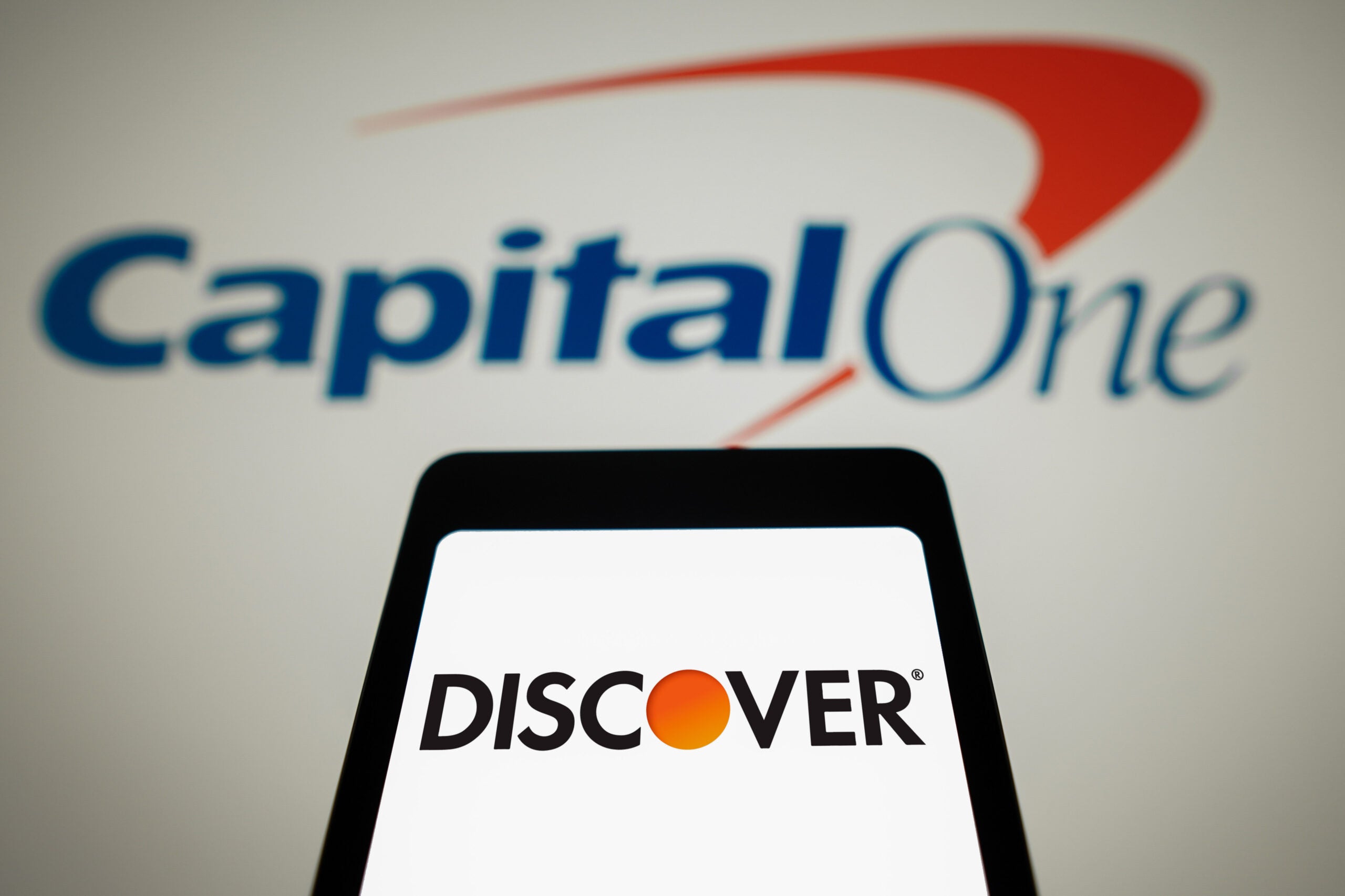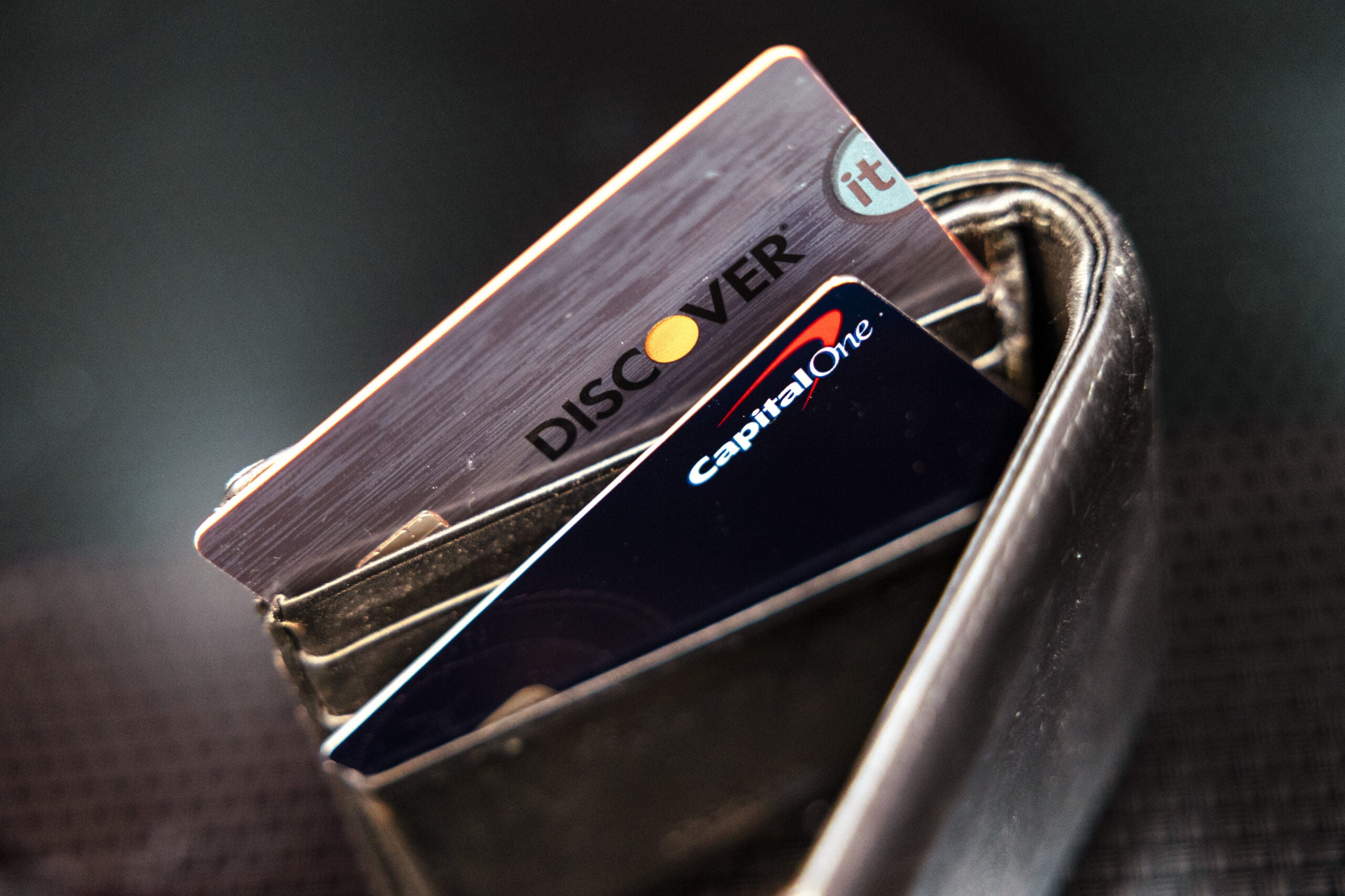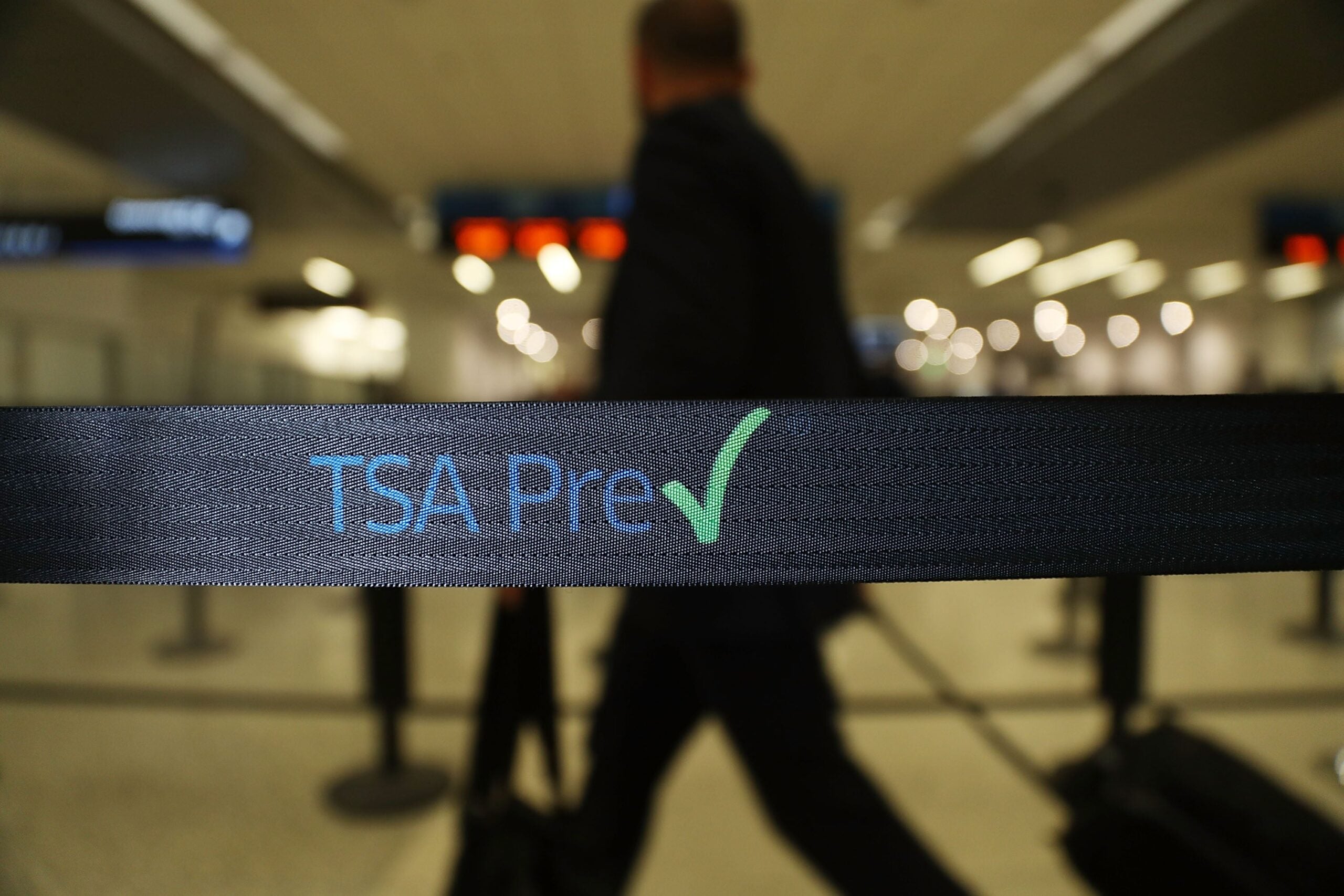Capital One-Discover merger: Here’s what it means for consumers and the Credit Card Competition Act
It’s a giant banking merger that would create the nation’s sixth-largest bank and have potentially significant implications for your credit cards. Capital One this week said it would purchase Discover Financial Services in an all-stock deal that would be worth some $35 billion. It would create the new largest credit card issuer in the world.
Related: The best credit cards for everyday spending
Capital One wants access to Discover’s credit card portfolio and, perhaps more importantly, to own Discover’s payment network. Discover has the fourth-largest payment network in the U.S. after Visa, Mastercard and American Express. Payment networks are how funds go from a merchant to a credit card issuer. Those networks enable digital monetary transactions and also come with fees ranging from as low as 1.5% to as high as 3.5% of the transaction. That’s big business and a potential source of major profits for Capital One.
It could give Capital One the ability to lower fees and enable it to keep more of the profits from credit card transactions. It’s also raising some concerns on Capitol Hill, where the deal would need to get signoff from federal regulators.
“I’m surprised we haven’t seen someone try to buy Discover sooner,” said Henry Harteveldt, a travel industry analyst and president of Atmosphere Research. “We’ve seen consolidation in a number of industries, and I’m not surprised Capital One would be interested in buying Discover to expand their protect portfolio and their reach and of course, grow revenues and profits.”
So, what might this deal mean for your wallet? Here’s what we know so far:
What will happen to my Discover or Capital One credit cards?
Not much should change for consumers in the short term. However, if the deal is approved, they may find that more merchants could take their Discover cards, especially internationally.
Capital One will push some of its credit cards to the Discover payment network. Capital One will want to dramatically expand its use of those networks to get a bigger revenue cut.
Capital One said it will continue to use the current Discover branding on Discover credit cards.

Daily Newsletter
Reward your inbox with the TPG Daily newsletter
Join over 700,000 readers for breaking news, in-depth guides and exclusive deals from TPG’s experts
I suspect you’ll see new credit cards introduced by both companies to maximize the benefits of a combination. While it’s pure speculation at this point, we could eventually see more lucrative offers for some credit cards offered by the combined company to encourage more consumers to use its networks.
Indeed, some analysts believe the deal could be good for consumers. David Roberston, the publisher and owner of the industry publication the Nilson Report, told The Wall Street Journal that the deal could actually enhance rewards programs.
Related: Review of Discover it Miles credit card
But not everyone is convinced. “I am a little more circumspect,” said Harteveldt in an interview with The Points Guy. “The possibility exists that consumers might be able to get more benefits, but there’s also an argument to be made that you’ll be reducing competition and reducing the need for these incentives.”
Will the Discover and Capital One deal be approved?
Capital One said the deal could close as soon as the end of 2024, though the government may not love another merger of big consumer-touching banking companies.
The merger is already facing bipartisan opposition on Capitol Hill. Sen. Josh Hawley, R-Mo., is demanding the Biden administration block the deal. Sen. Elizabeth Warren, D-Mass., also opposes the deal, saying on X (formerly known as Twitter) that the merger “threatens our financial stability, reduces competition, and would increase fees and credit costs for American families.”
However, similar deals have been approved in the past, so the federal government may let this one go through. There are arguments that the deal would actually be good for consumers because it would increase payment processing competition, with much of the market currently controlled by Visa and Mastercard.
What would the merger mean for the Credit Card Competition Act?
In fact, that’s the heart of the argument some politicians are using to campaign for the Credit Card Competition Act, which they claim would force more competition into the credit card industry to lower the fees merchants pay when shoppers swipe their credit cards.
That law would amend the Electronic Fund Transfer Act to require credit card-issuing banks to offer at least two networks for merchants processing electronic credit card transactions.
Interchange fees — also known as swipe fees — are the most important revenue driver for credit card companies. Card companies set fees for merchants in exchange for consumers being able to use credit cards at those merchants. Businesses like corner stores and hotels are charged each time a consumer makes a purchase with a card.
Related: Protect Your Points campaign
Some will argue that a beefed-up Discover network would offer more competition for Visa and Mastercard, eliminating the need for tighter regulation. The Electronic Payments Coalition told TPG, “It’s too soon to tell if this will impact the Credit Card Competition Act,” but it also said it shows just how weak the proposed legislation is if a merger could jeopardize it.
We’ll continue to weigh the ramifications of this megamerger and analyze what it means for “what’s in your wallet.”
Related reading:








